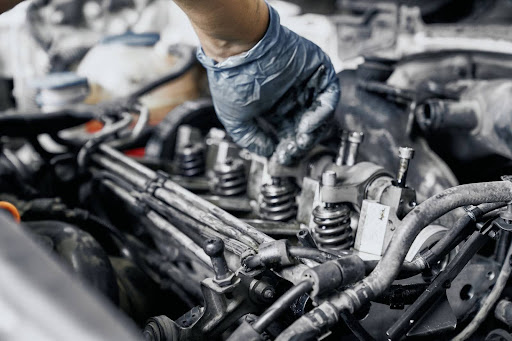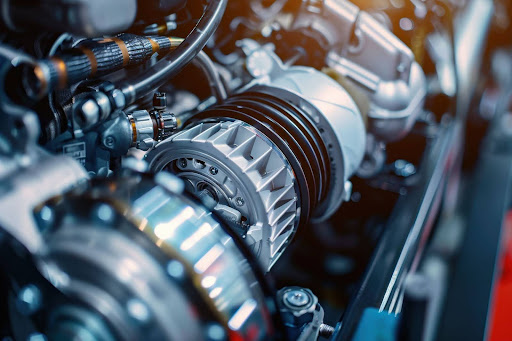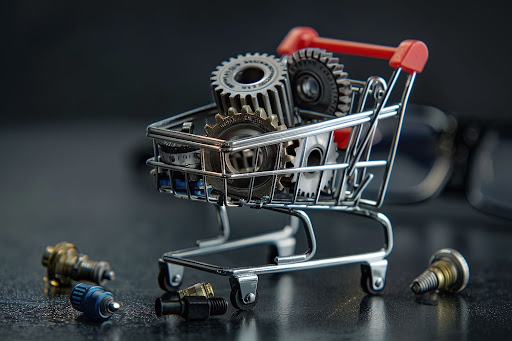Whether you are driving your vehicle for short-distance deliveries or covering longer and more challenging terrains, TGP filters are important components for your commercial vehicle. Driving invites unwanted impure airborne particulates inside your commercial vehicle. These can affect the performance of the engine and harm the occupants of the vehicle. Moreover, fuel also includes impurities that have the potential to cause serious harm to the engine’s system.
Here comes the role of 4 types of filters that keep everything running clean in your vehicle: Air filter, Oil filter, Fuel filter, and Cabin filter. Together they work to protect important parts of the vehicle and continue its smooth operation. The main function of the filter is to strain and expel impurities before they can harm the vehicle. If neglected or failed to change, their improper functioning can severely damage the vehicle’s vital parts.
While the Tata filter may appear straightforward in its function, it remains crucial to possess a comprehensive understanding of its operations, starting with the air filter.
Table Of Contents :
Understanding Different Types of Tata Filters
Air Filter
The engine air filter serves a critical role in the filtration of impurities present in the air drawn into the engine for combustion. This pivotal function ensures the smooth operation of the combustion process, directly impacting the engine’s performance. Such a direct influence on the combustion process plays a pivotal role in determining the vehicle’s fuel efficiency. To achieve optimal fuel efficiency, the vehicle must combust fuel properly. In the absence of this proper combustion, both fuel mileage and engine power are compromised, resulting in an inefficient use of resources.
The TGP air filter ensures 99.9% filtration efficiency, preventing harmful particles from entering the engine. The strong metal case around the filter increases its durability assuring double the engine life. Moreover, TGP spare parts are manufactured as per Original Equipment Manufacturing specification making it the best choice for any commercial vehicle.
Oil Filter
Moving onto the fluid section, the oil filter and fuel filter come into focus. While they serve similar functions, the oil filter takes precedence in safeguarding your engine’s longevity, and its impact on your vehicle’s performance is even more significant.
Inside the engine, many parts operate together. Over time, this cooperation can lead to minor wear and tear, generating tiny metal shavings that may accumulate and end up in the oil pan, eventually obstructing the flow of the lubricants. When the engine oil circulates back through, these metal shavings can also tag along, posing a potential threat to the engine’s well-being.
TGP Oil Filter efficiently removes the impurities accumulated in oil during flushing and cleaning. They are manufactured with top-notch materials and are the perfect fit for Tata Motors Commercial Vehicles.
Fuel Filter
The fuel filter is unique on this list as it serves a dual role, determined by the type of fuel utilized, be it gasoline or diesel. In the case of gasoline engines, the fuel filter’s primary function is to eliminate any impurities introduced with the fuel during refueling. For diesel engines, the fuel filter assumes a distinct purpose. While it also contributes to overall engine performance and longevity, its main role is to prevent internal engine parts from corrosion by removing accumulated water.
Since diesel is lighter than water, the filter adopts a bowl-like design to collect water at the bottom. Subsequently, a drain plug is used to expel the water, leaving only pure diesel. Allowing water to enter the engine or fuel system can lead to severe complications, making it a crucial consideration for those operating diesel commercial vehicles.
TGP Fuel Filters are manufactured as per OE standards that’s why they are the best fit for commercial vehicles. It offers superior quality performance and protects the engine.
Lastly, Tata Filter is tested for safety and performance ensuring zero impurities pass through them and your vehicle has the cleanest air, oil, and fuel.





